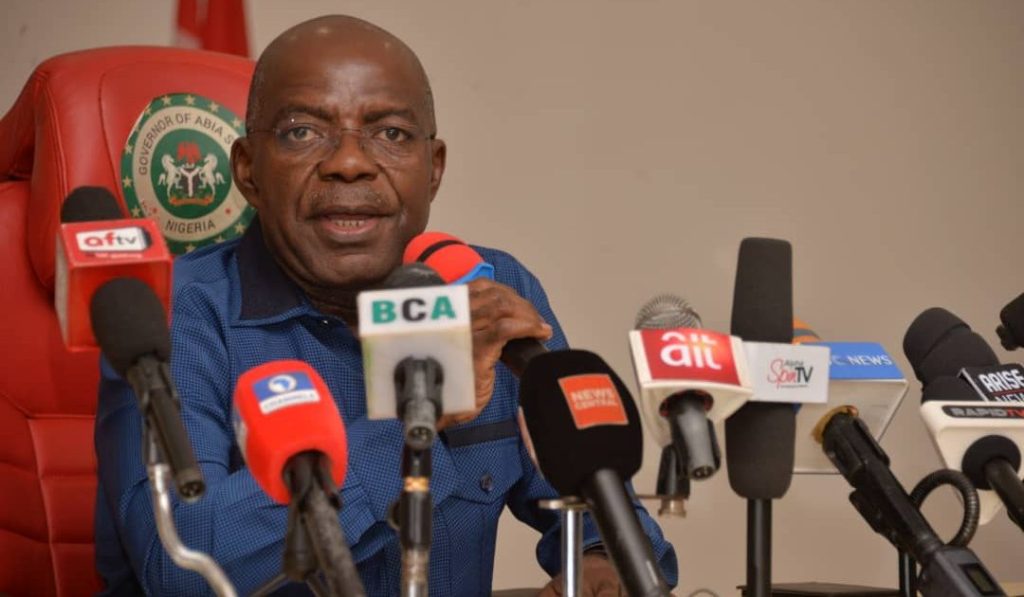The political landscape in Nigeria is constantly shifting, with politicians making strategic moves to align themselves with power structures and advance their agendas. The recent defection of Delta State Governor Sheriff Oborevwori and his predecessor, Ifeanyi Okowa, from the Peoples Democratic Party (PDP) to the ruling All Progressives Congress (APC) has sparked debate about the necessity of party allegiance versus individual relationships with those in power. Okowa, who served as the PDP’s vice-presidential candidate in the 2023 elections, justified his move by stating the need to connect Delta State more closely with the presidential administration. This action underscores the prevalent belief that proximity to the “centre,” meaning the federal government and its resources, is crucial for securing benefits for one’s constituency.
However, Abia State Governor Alex Otti, elected under the Labour Party (LP) banner, presents a contrasting perspective. He asserts that a strong personal relationship with President Bola Tinubu negates the need to switch party affiliations. Otti refutes the notion that belonging to the ruling party is a prerequisite for accessing the president and influencing policy decisions. He confidently claims to be closer to the president than some APC members, highlighting the importance of individual connections and influence over party labels. This position challenges the conventional wisdom that party membership is the sole determinant of political access and effectiveness, suggesting that personal relationships can play a significant role.
Otti’s stance raises questions about the motivations behind party defections. While some politicians may genuinely believe that joining the ruling party is in the best interest of their constituents, others might be driven by personal ambitions and the pursuit of power. Okowa’s defection, coming so soon after his vice-presidential bid on an opposing ticket, raises eyebrows and fuels speculation about the underlying reasons for his change of heart. Did he genuinely believe that aligning with the APC was the best way to serve Delta State, or were other factors at play? This question underscores the complex interplay of political pragmatism, personal ambition, and genuine concern for the electorate.
The contrasting approaches of Okowa and Otti highlight the diverse strategies employed by politicians navigating Nigeria’s political terrain. Okowa’s decision reflects the traditional approach of seeking power through party alignment, while Otti’s position emphasizes the importance of cultivating personal relationships and building influence regardless of party affiliation. This dichotomy reveals the fluidity of political loyalties and the constant recalibration of strategies in pursuit of political advantage. It also underscores the importance of understanding the individual motivations and calculations behind political maneuvers.
Adding another layer of complexity is the internal struggle within the Labour Party. Otti’s comments about the uncertain future of the LP and the expiry of National Chairman Julius Abure’s tenure add another dimension to the political drama. His statement that he “cannot say if there’ll still be an LP tomorrow” reflects the volatile nature of Nigerian politics and the vulnerability of smaller parties in the face of the dominant two-party system. The leadership crisis within the LP further complicates the political landscape and raises questions about the party’s ability to maintain its relevance and compete effectively in future elections.
In conclusion, the political dynamics in Nigeria are in constant flux, shaped by a complex interplay of party affiliations, personal relationships, and strategic calculations. The contrasting approaches of Governors Okowa and Otti exemplify the diverse pathways to power and influence. While Okowa’s defection to the ruling APC underscores the perceived importance of party alignment, Otti’s steadfastness in the LP, coupled with his assertion of close ties to the president, challenges this conventional wisdom. The ongoing leadership crisis within the LP adds further intrigue to the political landscape, underscoring the challenges faced by smaller parties in a system dominated by two major players. The evolving political dynamics will continue to shape the future of Nigerian politics, influencing policy decisions and impacting the lives of citizens.














